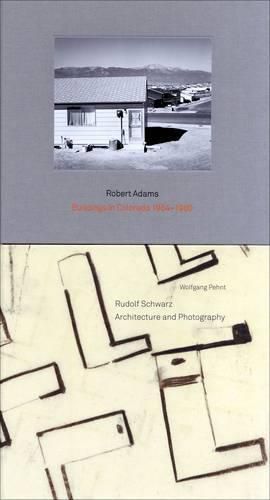Readings Newsletter
Become a Readings Member to make your shopping experience even easier.
Sign in or sign up for free!
You’re not far away from qualifying for FREE standard shipping within Australia
You’ve qualified for FREE standard shipping within Australia
The cart is loading…






This two-volume publication examines the early work of photographer Robert Adams (born 1937) in relation to the German architect Rudolf Schwarz (1897-1961). In a previously unpublished text, Adams reveals a close connection between his photography and the European architect. In the 1960s, on his only European tour, Adams focused specifically on Rudolf Schwarz’s churches in Aachen and Cologne, which left a lasting mark on Adams and inspired his decision to become a photographer and his early choice of subject, the Denver suburbs. As Adams wrote, Schwarz’s buildings helped suggest to me, when I returned to America, that not just churches, but whole urban and suburban landscapes might be revealed as sacred if we brought to them a measure of the same passionate regard that Schwarz had brought to his specifically religious commissions.
$9.00 standard shipping within Australia
FREE standard shipping within Australia for orders over $100.00
Express & International shipping calculated at checkout
This two-volume publication examines the early work of photographer Robert Adams (born 1937) in relation to the German architect Rudolf Schwarz (1897-1961). In a previously unpublished text, Adams reveals a close connection between his photography and the European architect. In the 1960s, on his only European tour, Adams focused specifically on Rudolf Schwarz’s churches in Aachen and Cologne, which left a lasting mark on Adams and inspired his decision to become a photographer and his early choice of subject, the Denver suburbs. As Adams wrote, Schwarz’s buildings helped suggest to me, when I returned to America, that not just churches, but whole urban and suburban landscapes might be revealed as sacred if we brought to them a measure of the same passionate regard that Schwarz had brought to his specifically religious commissions.